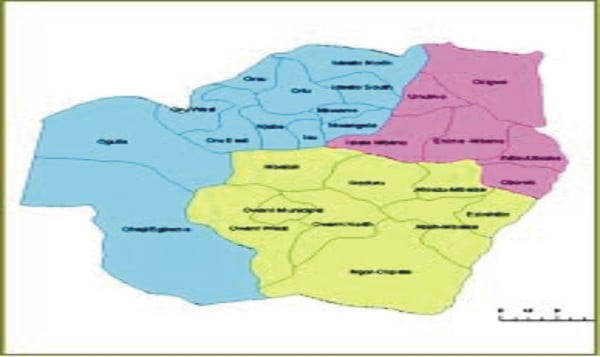Two agencies of the Catholic Church under the aegis of Caritas Nigeria and the Justice Development and Peace Commission on Tuesday criticized the recently re-introduced National Water Resources Bill which, it said, was poorly received by citizens and interest groups, given its apparent exclusion and non-consideration of states and citizens.
According to the organisations, the Bill, which was first introduced in 2020, grants the Federal Government direct control over surface and ground waters, and further mandates individuals to obtain a license before they can access water – a natural resource received freely from God to meet man’s needs.
The Executive Secretary/CEO, Caritas Nigeria and National Director, JDPC, Revd. Fr. Uchechukwu Obodoechina, who raised the objections in a statement issued in Abuja, said the Bill contravened the principle of true federalism.
He said, “The principle of Federalism should be respected and the rights of States and Local Governments to jurisdictions as it relates to domestic water use and protection must be protected by the Federal Government.
“We, therefore, urge the Federal Government to retract this legislation and prioritize public health by promoting every means possible for achieving quality water and sanitation services, including private ownership and unrestricted use of water.
“Caritas Nigeria, therefore, is rattled by the implications of this legislation, which has far-reaching effects on the citizenry and violates the Catholic Church’s principle of the Common Good. Although the National Water Resources Bill guarantees citizens the right to use water, it guards against private ownership of water and if signed into law, would lead to further centralization of power and the nation’s resources, thereby countering ongoing efforts towards devolution of powers.
“Moreover, Section 2(1) of the Bill, which reads, ‘All surface water and groundwater, wherever it occurs, is a resource common to all people,” has been interpreted as assigning terrestrial water bodies and sources under the control and supervision of the Federal Government.’
“Similarly, Section 13 of the Bill, states thus: ‘In implementing the principles under subsection (2) of this section, the institutions established under this Act shall promote integrated water resources management and the coordinated management of land and water resources, surface water and groundwater resources, river basins and adjacent marine and coastal environment and upstream and downstream interests.
“This, therefore, questions the principles of subsidiarity and inclusion; which states that a higher level of government or organization should not perform any function or duty that can be handled more effectively at a lower level, while, inclusion emphasizes equal access to opportunities and resources for everyone especially, for those who might otherwise be excluded or marginalized.
“Considering the unarguably significant role that water plays in preventing health risks and ultimately promoting community health, Caritas Nigeria has, over the years, conscientiously provided improved, equal and equitable access to water, sanitation, and hygiene services for all citizens for public and household purposes.
“Worthy of mention is our productive partnership with individuals, communities, and development partners, who selflessly ensure that people, including disadvantaged demographics, have unfettered, sustainable access to water by providing alternative sources of water like hand-pump and solar-powered boreholes.
“While we urge the Federal Government to retract the Bill, we hereby issue the following
recommendations: There is an urgent need for a comprehensive and holistic consultation with citizen groups across the board and states, to ensure that every concerned section of the populace is offered the opportunity to express their concerns about the Bill.
“The Federal Government, through the National Assembly, should concern itself with pressing
issues of poverty and hunger, unemployment and insecurity that ravage the country rather than
promoting contentious and ill-motivated legislation.
“All Senators and House of Representatives members should rise and protect the rights of citizens, and amplify their freedom to control ancestral resources such as land and water.
“The Church calls on all law-abiding citizens to remain peaceful and seek lawful means to redress
the above vexing piece of legislation. Citizen groups and civil societies should synergize and strategically collaborate to ensure that all that can be done is done to ensure that the obnoxious Bill does not see the light of day.
“We commit unequivocally, to partnering with interest groups and state actors to ensure that citizens exercise their legitimate rights and continually enjoy the necessities of life. God bless Nigeria!”






2 Comments